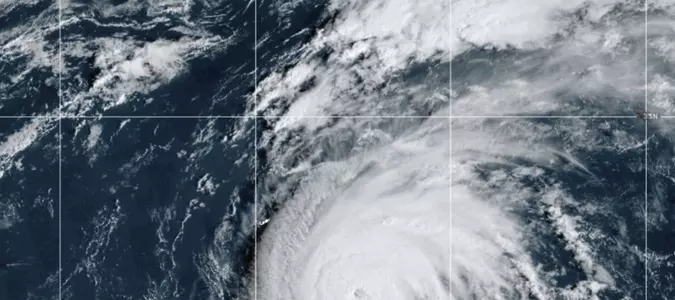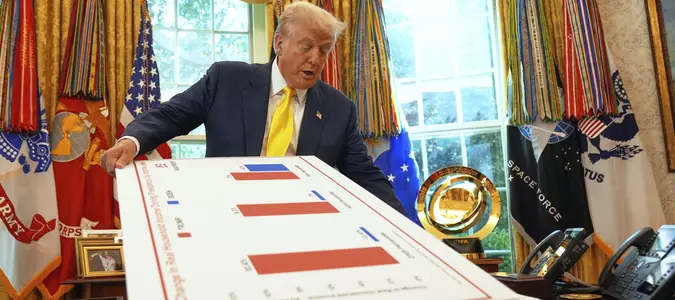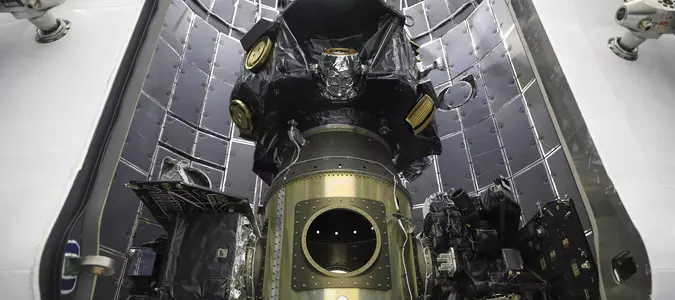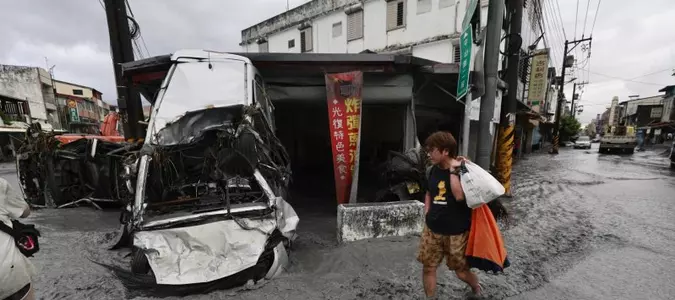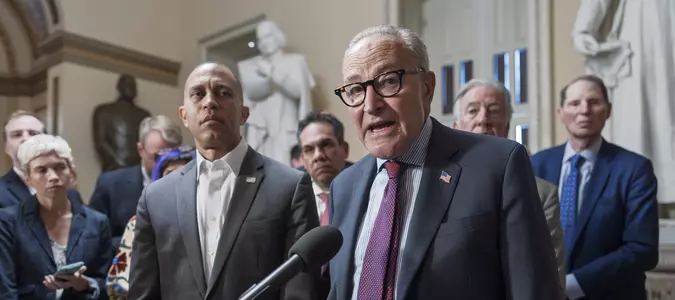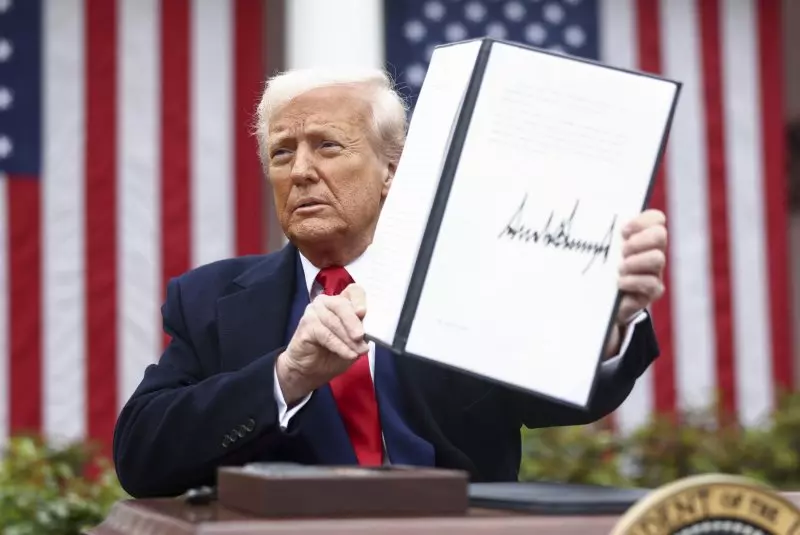

Three disasters loom for the United States
Whether or not the government shuts down in a week, the United States is confronted with a series of potentially explosive and very dangerous crises.

President Donald Trump holds up a signed executive order implementing new reciprocal tariffs against U.S. trading partners in the Rose Garden of the White House in Washington on April 2. File Photo by Jim Lo Scalzo/UPI UPI
Sept. 24 (UPI) -- Whether or not the government shuts down in a week, the nation is confronted with a series of potentially explosive and very dangerous crises. Consider three of the most threatening that have taken years to metastasize.
In 2014, without any advance warning, the Obama administration announced a "pivot" to Asia. Allies were scared and shocked. China was outraged. And the national security apparatus adjusted.
One of the results that evolved over the ensuing decade was the construct for waging a war, should one break out, with China. The profound flaw, however, is that this planning has disregarded the two most likely outcomes of major war with China: The war could escalate to the use of thermonuclear and nuclear weapons.
This distinction is important. A thermonuclear weapon has 1,000 times the destructive power of the atom-bombs dropped on Hiroshima and Nagasaki. The consequence would be the evisceration of both states and probably many more.
War, however could become protracted. For many reasons, the United States cannot fight a long war against another superpower. Producing the sinews of war takes years -- nine for a nuclear submarine; at least two for anti-aircraft missiles and more for F-35's. Likewise, ammunition stockpiles needed for a long war will require hundreds of billions of dollars spent now and full production will take years. Either outcome is disastrous.
Next, what will be the Supreme Court decision on whether to support the president's authority to impose tariffs in an emergency or to render it null and void? Either decision will be disastrous. If the tariffs are continued, inflation almost certainly will increase for the short term and probably longer. Economic sectors such as agriculture will face bankruptcy.
For example, sales of U.S. soybeans to China are now zero due to tariffs. Virtually every sector will be adversely affected. And the irony is that without government spending cuts, despite funds received from tariffs amounting to many hundreds of billions of dollars a year, national debt will continue to skyrocket, almost certainly causing increases in interest rates that will further hobble the economy.
Suppose the court denies the president the authority to levy tariffs. What then? All the trade agreements must be cancelled. And what about the hundreds of billions that have been collected? Must they be returned to those who paid them? So, no matter the decision, the result and consequences will be very bad.
The most vexing issue is constitutional. Donald Trump's actions challenge the Constitution and raise a fundamental issue: Is this great document still fit for purpose in the 21st century. Democrats do not grasp this yet. Their complaint is that Trump is threatening democracy.
But challenging the Constitution is not about destroying democracy, although the linkages can be understood. Can the nation continue under the current political system? And, if not, is it possible to make changes under the Constitution?
Trump understands that the checks and balances are not working. Following the logic of Woodrow Wilson, Trump is consolidating as much political power as possible, surely exceeding prior presidents to make government work. Congress is a rubber stamp. And only the courts can act as a check.
For example, the law specified that TikTok must be shut down after the 90-day grace period expired. It was not. Despite the law, Trump argues TikTok is important and he may have engineered a viable solution.
Another example: The United States destroyed three alleged drug boats in the Caribbean. This is clearly a violation of the law.
And, the Justice Department fired former FBI Director Jim Comey's daughter, a federal prosecutor, despite outstanding evaluations and in direct violation of the Civil Service Act that forbids such action without stating cause.
Meanwhile, Trump's attorney general, Pam Bondi, has been allowed to ignore the First Amendment by declaring there is free speech and hate speech. As U.S. Sen. Ted Cruz countered, there is only free speech.
And, of course, the bitterness and even hatred of both parties for each other make having a rational debate impossible. Indeed, even the condemnation of political violence has become hugely politicized, with White House Deputy Chief of Staff Stephen Miller claiming the Democratic Party is now "extremist," insinuating it should be declared a domestic terrorist organization == an allegation that has no standing under the law.
And by the way, if there were no political violence, would Charles III be our king? Where do we go from here? I wish there were some good answers.
Harlan Ullman is UPI's Arnaud de Borchgrave Distinguished Columnist; senior adviser at Washington's Atlantic Council, chairman of a private company and principal author of the doctrine of shock and awe. His next book, co-written with Field Marshal The Lord David Richards, former U.K. chief of defense and due out next year, is Who Thinks Best Wins: Preventing Strategic Catastrophe. The writer can be reached on X @harlankullman.

